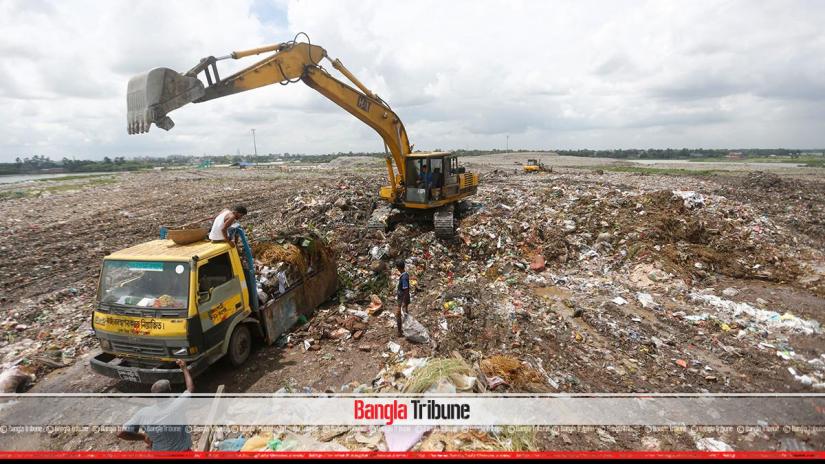 It is possible to recycle household waste into fuel and organic fertilizer, claims a study conducted by two Dhaka University students.
It is possible to recycle household waste into fuel and organic fertilizer, claims a study conducted by two Dhaka University students.
The study, says that the technology can meet 30 percent of fuel and 100 percent of the organic fertilizer demands.
The project is the brain child of Applied Chemistry and Chemical Engineering students HM Ranju and Pijush Dutta. They carried out the study from February 2018 to January this year.
The research was supervised by the department’s Professor Taslim-ur-Rashid, lecturer Sajidul Islam and Bangladesh Advance Robotics Center Chief Executive Jimmy Mazumder.
The study showed that in 1990, around 6,893 tonne of waste was produced everyday in the country. The number stood at 23,688 tonne in 2014 and is expected to go up to 47,000 tonne in 2025.
The calculation shows that everyday 32,165 tonne of waste is produced every day. The consequences of not properly managing such a large amount of waste can be disastrous.
A technologically modern recycle plant is expected to treat household waste and produce the following:
Substance produced from waste | Amount produced/100 metric ton of waste |
Fuel | 9.2 metric ton |
Gas | 2.12 metric ton |
Activated Carbon | 0.50 metric ton |
Hydrochloric Acid | 0.93 metric ton |
Dry Ice | 20.65 metric ton |
Bio Ethanol | 21.55 metric ton |
Organic Fertilizer | 11.20 metric ton |
The technology will enable household waste to be completely recycled in an environment friendly way. Moreover, the gas and fuel produced in the plant will be able to power it.
Among the seven substances, the gas produced can be used at households for cooking, just like natural or liquefied petroleum (LP) gas as well as can be used in automobiles.
The study showed that through the technology, over 2.3 million metric ton of fuel can be produced with last year’s waste which is 30 percent of the demand.
Moreover, more than 1.3 million tonne organic fertilizer can be produced.
The plants with the capacity to process 100 tonne of waste will require Tk 25 million to be built. Two plants will be enough to process the 4,000 tonne waste produced in the capital each day.
According to the study, one plant in each of the district will be enough to process the household waste of the entire country. The cost of each plant can be covered within eight months through the sale of the substances produced.
The researchers said that a pilot model of the plant that they built cost Tk 35,000, sponsored by ABC Construction. They were able to derive satisfactory results from testing the plant to treat waste.
“The researchers have proved it’s possible to produce valuable chemicals by processing waste through the technology,” Sajidul Islam, one of the supervisors of the project, told Bangla Tribune.
“We have tested the chemicals in our labs and the result was satisfactory,” said the Applied Chemistry teacher before adding it was possible to implement it on a larger scale.
Ranju and Dutta, the researchers said that waste is a matter of concern throughout the whole world, not just Bangladesh. They added that they invented the environment-friendly plant which has the potential to make significant contributions to the economy.


